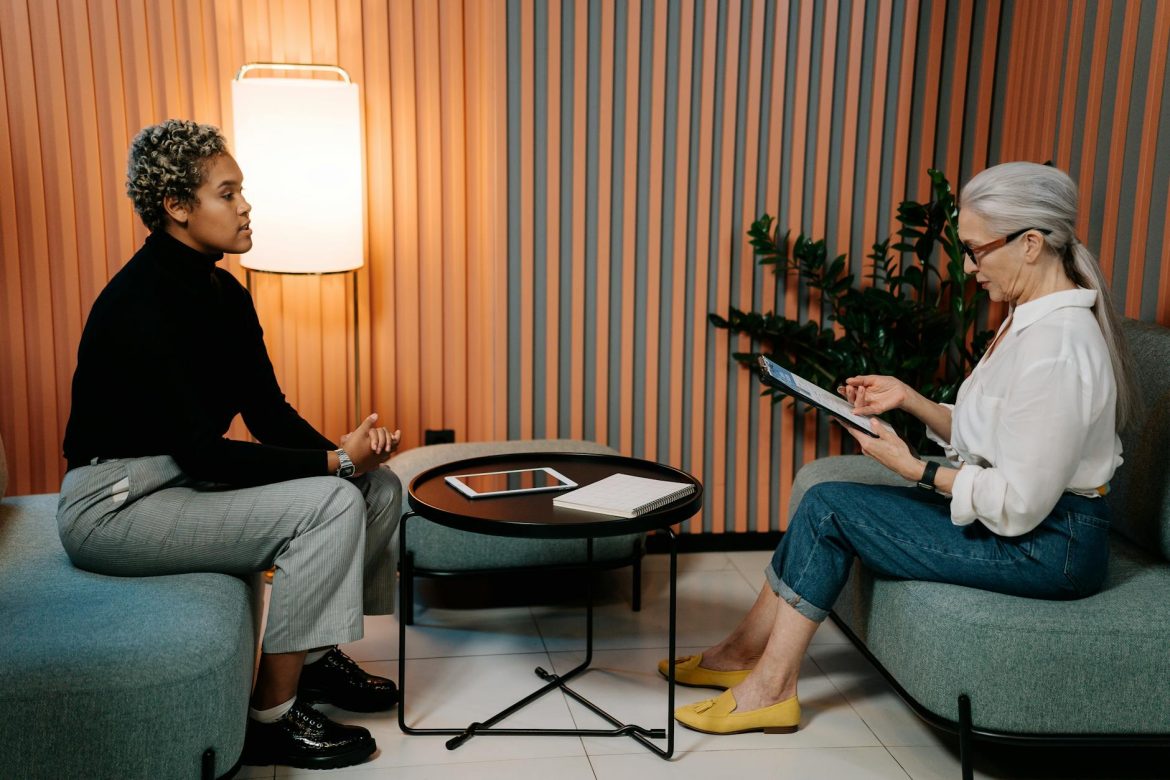Many job seekers focus solely on answering questions in an interview, but the best candidates know that asking insightful questions can be just as important. Knowing the best questions to ask in an interview as a candidate not only helps you gather crucial information about the role and company but also makes you stand out as an engaged and thoughtful applicant.
Preparing smart questions allows you to:
- Understand the company culture and values.
- Clarify job expectations and responsibilities.
- Demonstrate genuine enthusiasm and critical thinking skills.
In this guide, we’ll walk you through 20 of the best questions to ask in an interview as a candidate so you can leave a lasting impression while ensuring the role is the right fit for you.
The Role of Questions in an Interview
Empowerment Through Inquiry
Asking the right questions gives you control over the conversation, ensuring that you gather all the details necessary to make an informed decision about the job offer.
Differentiating Yourself
Candidates who ask meaningful questions show hiring managers that they are proactive, engaged, and serious about their careers. It signals confidence and curiosity—both valuable traits in any employee.
ALSO READ: How to Create an Irresistible Resume in 2025
Categories of Questions for Candidates
To make the most of your interview, structure your questions into different categories:
1. Questions About the Role & Responsibilities
- “What does a typical day in this role look like?”
- “What are the immediate priorities for this position?”
2. Questions About Team & Culture
- “Can you describe the team’s dynamic and work style?”
- “How does the company foster collaboration?”
3. Questions on Professional Development & Growth
- “What training and development opportunities do you offer?”
- “How does this role contribute to long-term career growth?”
4. Questions on Performance & Expectations
- “How is success measured for this role?”
- “Can you share an example of a successful employee in this position?”
The 20 Best Questions to Ask in an Interview as a Candidate
1. What are the biggest challenges someone in this role will face?
- Rationale: Helps you assess potential difficulties and whether you’re up for the challenge.
- Tip: Follow up with, “How have past employees successfully navigated these challenges?”
2. How would you describe the company’s leadership style?
- Rationale: Gives insight into management dynamics.
- Tip: Ask for an example of how leadership supports employees.
3. What are the top priorities for this position in the first 3-6 months?
- Rationale: Helps set expectations for success.
- Tip: Follow up with, “What resources will be available to achieve these goals?”
4. Can you tell me about the team I’d be working with?
- Rationale: Gives an understanding of team structure and collaboration.
- Tip: Ask about team members’ backgrounds and work styles.
5. How does this role contribute to the company’s overall goals?
- Rationale: Provides insight into the bigger picture.
- Tip: Ask how success in this role impacts the company’s mission.
6. What are the key qualities of someone who excels in this role?
- Rationale: Helps align your skills and strengths.
- Tip: Follow up with, “How does the company support employees in developing these qualities?”
7. How does the company approach work-life balance?
- Rationale: Crucial for understanding company culture.
- Tip: Ask about flexible work policies or remote work options.
8. Can you share insights into the company’s culture and core values?
- Rationale: Helps determine if the workplace aligns with your values.
9. What opportunities for professional growth exist within the company?
- Rationale: Ensures potential for career advancement.
- Tip: Ask for examples of employees who have advanced within the company.
10. What do you personally enjoy most about working here?
- Rationale: Provides a genuine perspective from the interviewer.
11. How does the company support professional development and learning?
- Rationale: Indicates commitment to employee growth.
- Tip: Ask about mentorship programs or tuition reimbursement.
12. Can you describe the company’s approach to diversity and inclusion?
- Rationale: Provides insight into workplace culture and values.
- Tip: Ask about initiatives or programs that promote inclusivity.
13. What are the company’s biggest challenges right now, and how does this role contribute to overcoming them?
- Rationale: Shows strategic thinking and interest in the company’s future.
- Tip: Ask how the team is tackling these challenges.
14. How does the company recognize and reward high-performing employees?
- Rationale: Helps gauge appreciation and incentive structures.
- Tip: Ask about formal recognition programs or performance bonuses.
15. What technologies or tools does the team use regularly?
- Rationale: Helps assess technical expectations.
- Tip: Ask how the company stays up to date with industry trends.
16. How do employees typically collaborate across departments?
- Rationale: Gives insight into teamwork and communication.
- Tip: Ask about cross-functional projects and workflow processes.
17. What qualities make someone a great fit for the company’s culture?
- Rationale: Helps evaluate cultural alignment.
- Tip: Ask for examples of employees who have thrived in the company culture.
18. What are the biggest misconceptions people have about working here?
- Rationale: Provides unfiltered insight into the company.
- Tip: Ask what surprises new employees the most.
19. How has the company evolved in the past few years?
- Rationale: Shows how adaptable and forward-thinking the organization is.
- Tip: Ask how leadership envisions future growth.
20. What are the next steps in the hiring process?
- Rationale: Ensures clarity on what to expect after the interview.
- Tip: Ask about the timeline and how you can best follow up.)

How to Prepare for Your Interview
Research Strategies
- Study the company’s website, mission, and recent news.
- Review the job description carefully to align your questions with the role.
Customizing Your Questions
- Adapt your questions based on the industry, role, and hiring manager.
- Avoid generic questions—make them specific and relevant.
ALSO READ: 10 Essential Virtual Interview Tips for 2025
Best Practices for Asking Questions
1. Delivery & Timing
- Ask questions naturally throughout the conversation, not just at the end.
- Keep questions concise and relevant to the discussion.
2. Active Listening
- Take notes and show genuine interest in responses.
- Use follow-up questions to gain deeper insights.
3. Handling Unexpected Answers
- Be adaptable—pivot your questions based on the interviewer’s responses.
- If something is unclear, don’t hesitate to ask for clarification.
Real-Life Examples & Testimonials
Success Stories
- Example: A candidate asked insightful questions about team culture, leading to a job offer over equally qualified competitors.
Expert Insights
- Career coaches emphasize that asking the right questions demonstrates confidence and strategic thinking.
FAQ
1. How many questions should I ask in an interview?
Aim for 5-7 well-thought-out questions to keep the conversation engaging.
2. What if I run out of questions?
Prepare extra questions in case some are answered naturally during the conversation.
3. Can I ask about salary in the first interview?
It’s best to wait until later interview stages unless the interviewer brings it up.
Conclusion
Asking the best questions in an interview as a candidate helps you make informed career decisions while leaving a strong impression on the hiring manager. Thoughtful questions demonstrate your enthusiasm, professionalism, and preparedness.
Next Steps:
✅ Prepare your list of questions in advance. ✅ Customize them based on the role and company. ✅ Use this strategy to stand out and land your dream job!
ALSO READ: AI Careers: Ace Your Job Interview with These Tips



0 responses to “20 Best Questions to Ask in an Interview as a Candidate”